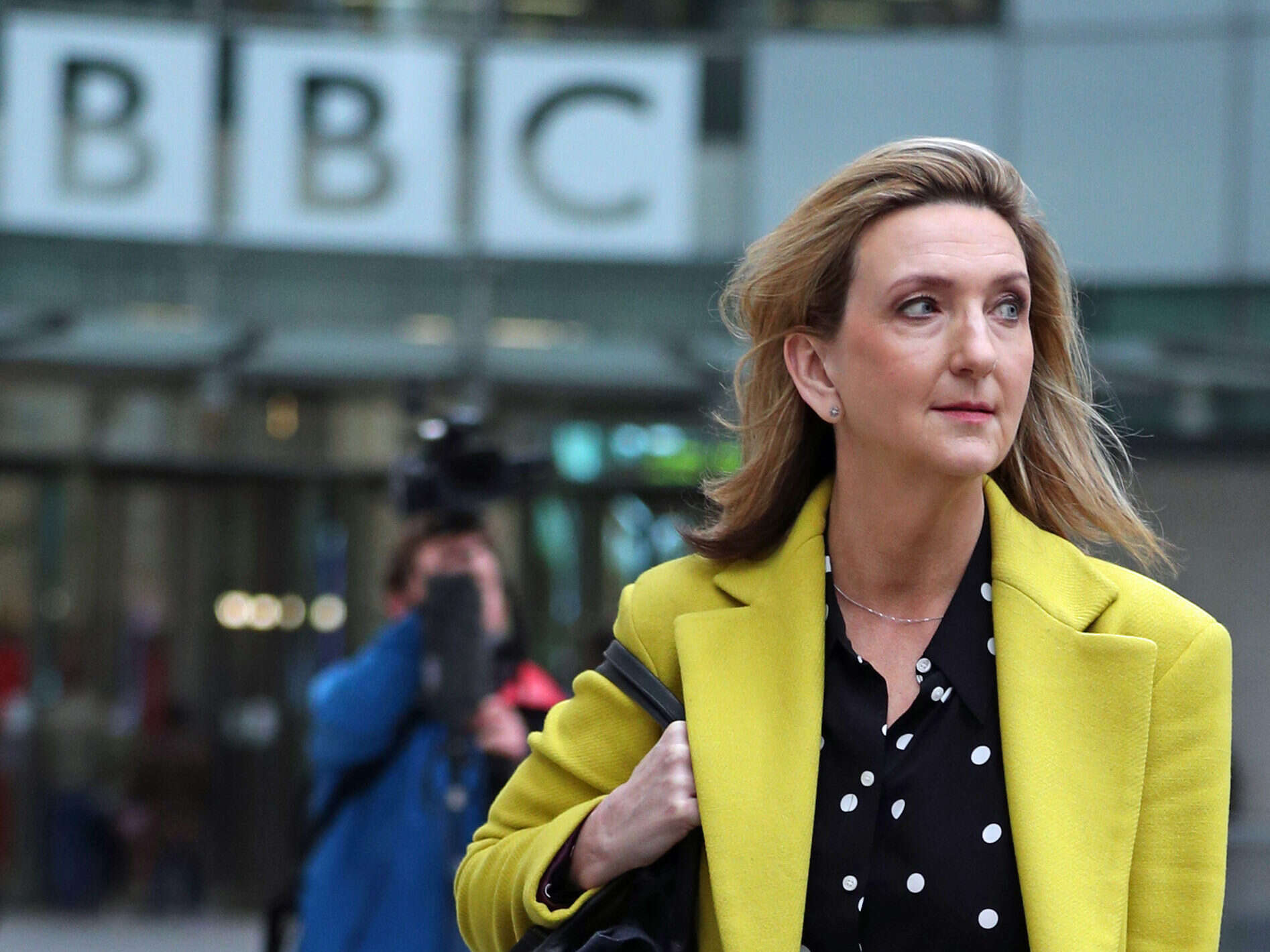
The Victoria Derbyshire Show’s journalism could find a new home on the BBC News channel, the corporation’s director-general has said as he defended plans to end the programme.
Appearing before MPs on the Culture Committee today, Tony Hall said the daily show attracts fewer women and younger viewers than the average for the BBC’s news programmes.
It costs £3m to make and reaches a TV audience of about 300,000 which is “more male and older than you might think,” according to the outgoing BBC boss.
The Victoria Derbyshire Show airs simultaneously on BBC Two and the BBC News channel at 10am weekdays. It was launched in April 2015 under former news director James Harding.
“It’s been a very good programme,” Lord Hall told MPs. “It’s not reaching the numbers we’d hoped it would reach, but the journalism has been first rate.”
Derbyshire herself has openly criticised the BBC’s decision to swing the axe and defended her show’s audience online, which is significantly larger than on TV.
“As we’ve done with Watchdog,” said Lord Hall, “we’d like to find a way of getting the journalism which Victoria Derbyshire stands for – and she’s a first rate presenter and journalist – in places where it can meet the audiences we hoped it would capture”.
He added: “What I very much hope is that the programme team, Victoria herself, and the journalism which they do will find a home on the news channel and elsewhere around the BBC because I think it is important.”
Watchdog, which has been running for 40 years, will move to a consumer affairs slot on The One Show this spring, bringing an end to its twice-yearly limited series.
Said Lord Hall: “You can’t keep programmes going on forever, we are in a tighter financial environment and we need to make those hard decisions.”
Asked about jobs losses on the Victoria Derbyshire Show, Lord Hall said only that the BBC was asking for voluntary redundancies as part of its target to cut 450 jobs across the news department.
The BBC aims to “modernise” the newsroom and shift away from a programme-led model to one led by stories, reducing size and output.
Pressed on why the BBC was making cuts in its core purpose of delivering news, Lord Hall said it had lost the equivalent of 25 per cent of its budget since 2010 as a result of government cuts.
BBC News needs to find £80m in savings by 2021/22.
Said Lord Hall: “There’s another thing going on here which I think is really important for the future of the BBC and that is that the way we have produced news has basically unchanged since I was running news about a generation ago when we introduced News 24, Five Live and all of that.
“What the news team are now saying under [news director] Fran Unsworth is we want to get news that is pointed to where our audiences are, which is much more online, much more through apps and to get better value and more concentration of news in that area…”
He added: “This is a different way of doing news. But I think this answers the question about how we preserve our news operation for the future and we direct our resources where we want them for the future.”
Lord Hall said it would also be a step towards tackling the “wastefulness” in news coverage, where a number of BBC journalists are often sent to cover the same story and chase the same interview.
“For example with coronavirus, frankly if you’re doing an interview with somebody that ought to get on the air as quick as you can, online, not waiting for the ten o’clock news or anything like that,” said Lord Hall.
“I think it gives real focus. I think this is going to be more efficient, it needs working through but I think it will lead to a higher quality of specialist journalism appearing online.”
But he said the BBC still needed to maintain a balance between a 24-hour news cycle and programmes that “stand back and say let’s make sense of this” such as Newsnight, which is facing cuts under the restructure impacting staff and investigations.
“Discussions that are going on are how much do you concentrate online – everything going into those big stories and the way they develop – and how much do you still allow programmes like Today or PM… to stand back. And you’ve got to preserve that but I think the changes will make the broad service much better.”
Asked by Tory MP Damian Green about the ministerial boycott of Today and other programmes, Lord Hall said he was “very pleased” ministers were now back on the air.
Lord Hall will step down as BBC director-general in the summer after seven years in the role. Applications to replace him closed yesterday.
Picture: Yui Mok/PA Wire
Email pged@pressgazette.co.uk to point out mistakes, provide story tips or send in a letter for publication on our "Letters Page" blog
